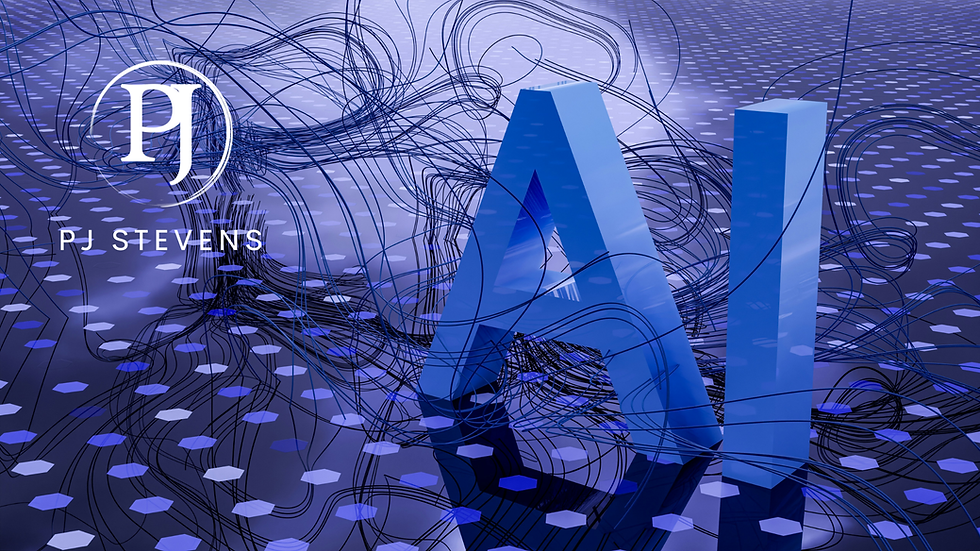World Earth Day-ly
- PJ Stevens

- Apr 19, 2025
- 4 min read
If the Earth isn’t Healthy, we are screwed.
Each year, World Earth Day comes around, marked by hashtags, headlines and hopeful posts about saving the planet. And while it’s a good reminder, let’s be honest, we shouldn't need a day to remind us that the Earth needs love and care.
You wouldn’t set aside one day a year to drink water or breathe, would you?
If the planet isn’t healthy, we suffer too. We see it in disrupted supply chains, rising business costs, climate-related disasters, lost productivity and global instability. It’s not a distant issue, we know this. It’s here, and it’s affecting all of us, including the way we live, work and lead.
So why do we still need World Earth Day? Is it because too many people and businesses are still acting like it’s someone else’s problem. I think this is an opportunity to pause, really reflect, and ask ourselves what are we doing, day to day, to protect and nurture the only home we have?
It’s not just about the environment, this is holistic.
The climate crisis isn’t just about polar bears and melting ice caps. It’s about people, productivity, performance and our collective future. We’re already seeing the human and economic costs of ignoring the health of our environment. Crops are failing, energy prices are spiking. We see that floods, fires and droughts are becoming the new normal.
This isn't just an environmental issue, it’s a business one, and a moral one, surely.
Time to change how we think, act, and lead
As individuals, it’s easy to feel powerless, or to use that excuse. But change begins with one decision, one conversation, one action, one person. That might mean wasting less, buying better or consuming more consciously. It’s about doing what we can, where we are, with what we’ve got.
At work, in teams, we have even more power. We can challenge old habits, we can push for greener ways of working, take fewer flights, smarter energy use and connect with more thoughtful suppliers.
We can ask, ‘Is this necessary?’ or ‘Is this the best way?’ And if it isn’t, we can do something about it.
Locally, we can connect with others who care and want to make a difference in our community such as businesses, councils, schools and charities. I believe collaboration drives impact. Whether it’s community clean ups, local events or shared sustainability goals, when people work together, change accelerates.
And at a business level, greenwashing is out, and meaningful action is in. Customers, clients and employees are no longer impressed by vague eco statements, half-hearted recycling schemes or the total BS that some companies spout! They (we) want transparency, accountability, and evidence of impact.
Sustainability should no longer sit in a quiet corner of the CSR report, neither – in my view – should it be a ridiculous activity that costs too much or wastes time in its own right. It must be embedded into strategy, culture, and decision-making for good. The companies that thrive in the future will be those that take sustainability seriously now, not because it's trendy, or because the CSR expert says so but because it’s necessary and can make great business sense.
The role of leadership
Change starts with leadership and not just by making declarations in town hall meetings, but by demonstrating daily commitment and setting the tone through action.
Good leaders walk the talk. They make sustainability part of the business’s purpose, not an optional extra. They give their people the permission — and the expectation — to think differently, speak up and get creative around sustainability.
Strong leaders are willing to challenge what’s always been done. They’re not afraid to ask tough questions such as: why are we still doing this; is this wasteful; what does this cost the planet, or what do we want our legacy to be?
Critically, they understand that this isn’t just about protecting nature. It’s about building resilient businesses that are fit for the future. A business that damages the environment today will struggle to succeed tomorrow. That’s not ideology, it’s common sense.
This isn’t about perfection
No one expects perfection here, but we should expect progress. We should demand honesty, effort and ambition from ourselves and the organisations we lead or support.
Small steps matter, as long as they’re moving in the right direction. Replacing single-use plastic with reusable alternatives won’t solve the climate crisis, but it helps. Asking your supply chain tough questions might ruffle feathers, but it makes a difference, and may bring you closer together with a few of them. Having awkward conversations about waste, travel or values may feel uncomfortable but leadership isn’t about comfort. Leadership is about doing what’s right.
Earth Day can’t be a one-off
World Earth Day is important. But it can’t be a once-a-year tick-box exercise. It must become a habit, a mindset and a movement. We need to treat it not as a single moment to care, but as a reminder that we need to care day-ly.
We cannot separate environmental health from human health or from business health. It’s all connected, we know this and have done for decades. And when the planet suffers, we suffer physically, economically and emotionally. If the Earth is gasping for breath, then sooner or later, so will we.
Final Thought
We don’t need more slogans or committees. We need more action. If you’re a leader in business, in your team, or in your community, this is your chance to make a difference.
· Start where you are.
· Use what you’ve got.
· Do what you can.
· And do it every day.
Because there’s no thriving business, no strong economy and no happy home on a broken planet, and that’s why every day must become Earth Day.





Comments